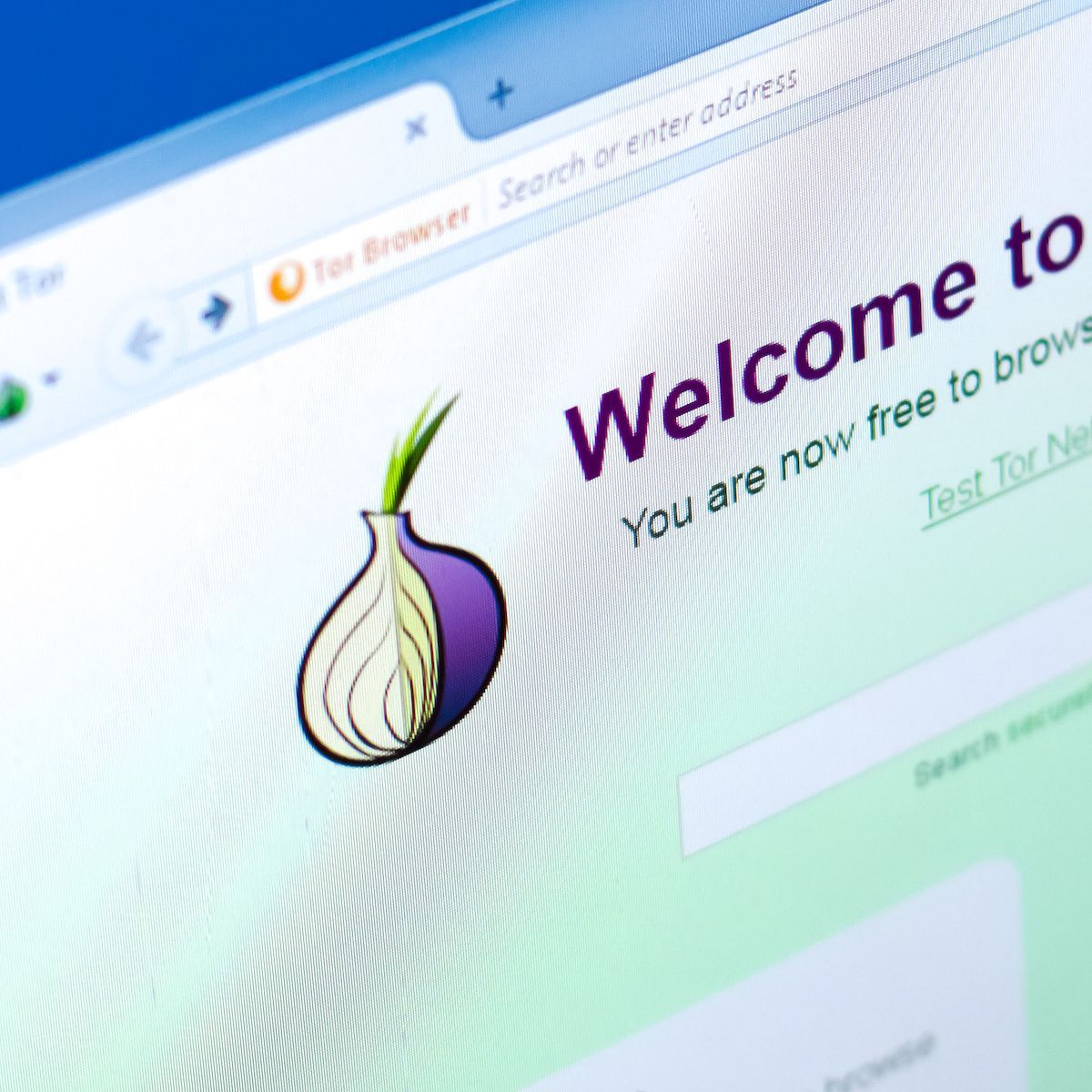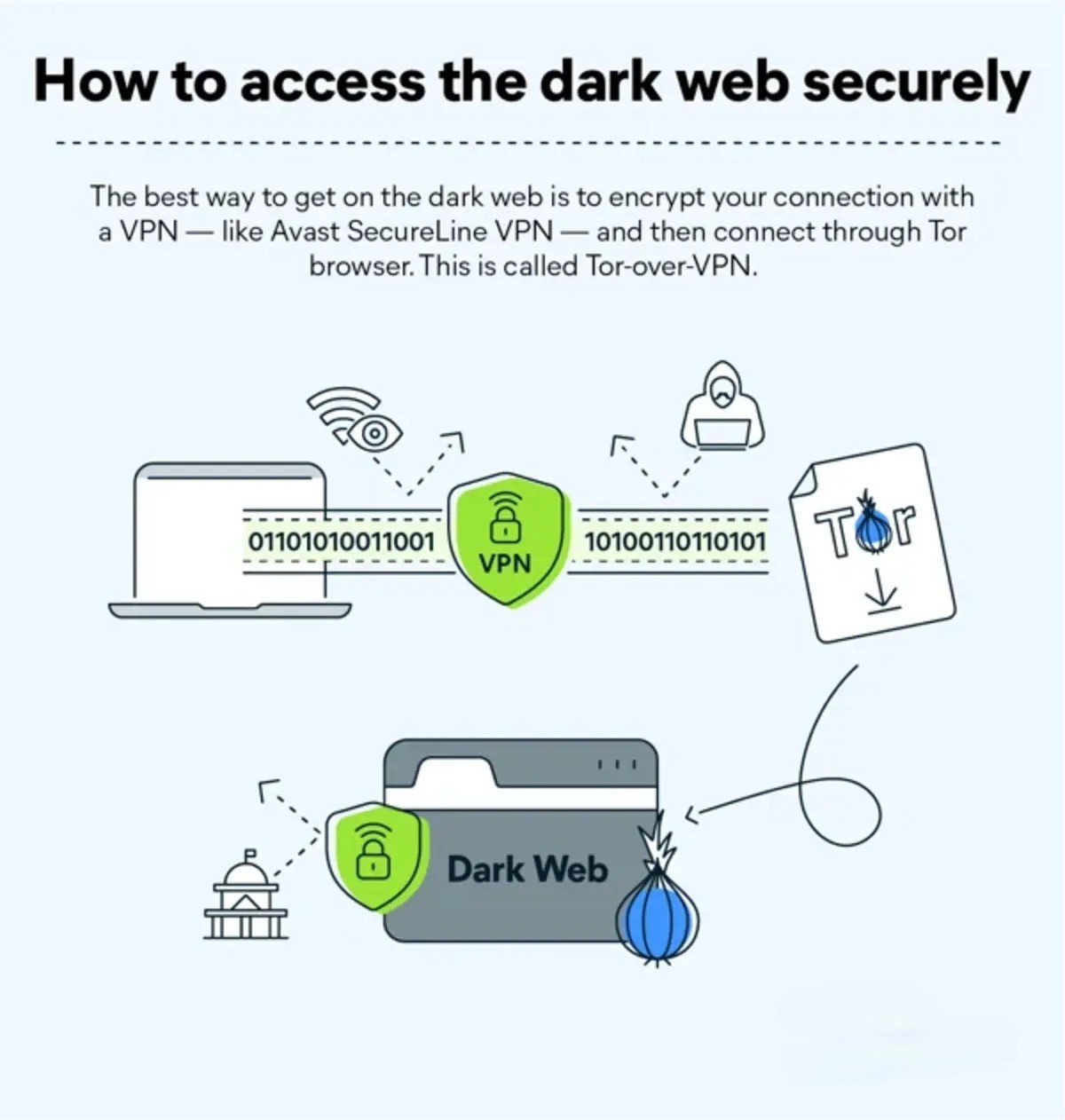Introduction
As internet privacy and security concerns continue to grow, many people are seeking ways to protect their online activities and maintain anonymity. One popular solution is the use of the Onion Browser. But what exactly is the Onion Browser, and how does it work? In this article, we will explore the ins and outs of the Onion Browser, including its history, features, and tips for staying safe while using it.
The Onion Browser is a web browser that allows users to access the internet anonymously. It is based on the unique technology of the Onion Router, also known as Tor. With the Onion Browser, your online activities are routed through a series of encrypted nodes, making it difficult for anyone to trace your IP address or monitor your browsing habits. This added layer of privacy is particularly beneficial for those who wish to avoid government surveillance, protect sensitive information, or bypass censorship restrictions.
Unlike traditional web browsers, the Onion Browser prioritizes privacy over convenience. This means that it may not offer the same speed or user-friendly interface as popular browsers like Google Chrome or Mozilla Firefox. However, for individuals concerned about privacy, the trade-off is well worth it.
In the following sections, we will delve deeper into the history of the Onion Browser, explore how the Onion Router works, discuss its features and advantages, and provide step-by-step instructions for downloading and using the Onion Browser. We will also share valuable tips to ensure your safety and anonymity while using this powerful privacy tool.
Please note that while the Onion Browser can provide an extra layer of protection, it is not a foolproof solution. Users should still exercise caution when sharing personal information or engaging in potentially risky online activities. With that said, let’s dive into the fascinating world of the Onion Browser and discover how it can help safeguard your online privacy and security.
History of the Onion Browser
The Onion Browser, developed by Mike Tigas, is a product of the Tor Project, a non-profit organization focused on promoting online privacy and anonymity. The Tor Project was founded in the early 2000s with the aim of developing an open-source network that allows users to browse the internet without revealing their identity or location.
The story of the Onion Browser begins in 2012 when Tigas, a web developer and privacy advocate, created a mobile browser for iOS devices that integrated with the Tor network. Prior to the release of the Onion Browser, using Tor on mobile devices was quite challenging, as it required users to go through complicated setup processes and configure various settings manually.
Tigas recognized the need for a user-friendly and accessible Tor solution on mobile devices, especially as smartphones became increasingly prevalent. He saw an opportunity to make Tor more widely available to everyday users, regardless of their technical expertise.
In July 2012, the Onion Browser made its debut on the Apple App Store. It quickly gained attention and popularity among privacy-conscious individuals who wanted to protect their online activities on their iPhones and iPads. Tigas released the Onion Browser as a free app, reflecting his commitment to making Tor accessible to as many people as possible.
Over the years, the Onion Browser has undergone several updates and improvements. Tigas continues to maintain and update the app to ensure compatibility with the latest iOS versions and enhance its performance and security features. Thanks to his dedication and the support of the Tor community, the Onion Browser remains a trusted and reliable tool for maintaining online privacy.
In 2016, the Onion Browser received significant recognition when it became the official recommended Tor browser for iOS devices. This endorsement further solidified its position as a reputable and user-friendly option for accessing the Tor network on mobile devices.
Today, the Onion Browser is available not only on iOS but also on Android devices, allowing a wider range of users to experience the benefits of Tor on their smartphones and tablets. Its availability on multiple platforms has contributed to its continued growth and popularity, as more individuals seek ways to protect their online identities and activities in an increasingly interconnected world.
What is the Onion Router (Tor)?
The Onion Router, commonly known as Tor, is an open-source network that aims to protect users’ online privacy and anonymity. It works by routing internet traffic through a series of encrypted nodes, making it difficult for anyone to track the origin of the data or the identity of the user. Tor was developed by the U.S. Naval Research Laboratory in the 1990s and has since become a popular tool for bypassing censorship, accessing blocked websites, and maintaining anonymity online.
The name “Tor” is derived from its core technology, which employs a layered encryption method. Each layer is decrypted as the data passes through each node, hence the reference to “onion.” The Tor network consists of thousands of volunteer-operated servers, known as nodes or relays, located all around the world. When you use Tor, your internet traffic is randomly routed through a series of these nodes before reaching its final destination. This process helps to obfuscate your IP address and makes it extremely difficult for anyone to trace your online activities back to you.
One of the key principles of Tor is the concept of “onion routing.” As your internet traffic passes through each node, the layers of encryption are peeled back, revealing the next node in the chain. This multi-layered approach ensures that no single node has full knowledge of both the source and destination of the data, effectively preventing anyone from intercepting, tampering with, or tracking your online communications.
Tor is widely used by individuals and organizations around the world. It is particularly favored by activists, journalists, whistleblowers, and individuals living in countries with strict censorship and surveillance regimes. By using Tor, these users can access websites and services that may be blocked or restricted in their location, communicate securely with others, and protect their identities from prying eyes.
While Tor provides a significant level of privacy and anonymity, it is important to note that it is not foolproof. It can protect against many threats, but there are still methods that, if implemented correctly, could potentially compromise privacy. Users must stay vigilant and follow best practices to ensure their safety and anonymity while using Tor or the Onion Browser.
How does the Onion Browser work?
The Onion Browser is built upon the technology of the Tor network, utilizing its unique method of routing internet traffic to provide users with enhanced privacy and anonymity. When you use the Onion Browser, your online activities are directed through a series of encrypted nodes, making it difficult for anyone to trace your IP address or monitor your browsing habits.
When you enter a website address or perform a search in the Onion Browser, the request goes through a process known as “onion routing.” This process involves your internet traffic passing through multiple Tor nodes before reaching its final destination. Each node in the chain peels off a layer of encryption, revealing the next node to pass the data along. This multi-layered approach ensures that no single entity has complete visibility into both the source and destination of your online activities.
The Onion Browser also integrates other privacy-enhancing features to further protect your online identity. One of these features is “New Identity,” which allows you to quickly and easily change the circuit of Tor nodes being used. This feature can be especially useful if you suspect that a specific node may be compromised or if you want to prevent websites from tracking your browsing patterns.
Additionally, the Onion Browser offers options to block web trackers, disable JavaScript, and automatically clear browsing data when you exit the application. These settings are designed to minimize your digital footprint and make it more challenging for websites and advertisers to track your online behavior.
It is essential to note that while the Onion Browser provides an extra layer of privacy, it cannot guarantee complete anonymity or protection from all potential threats. Factors such as browser fingerprinting, malware, or compromised websites could still pose risks to your privacy and security. Therefore, it is crucial to stay informed and exercise caution while browsing the internet, even when using the Onion Browser.
By leveraging the power of the Tor network, the Onion Browser makes it possible for individuals to access the internet anonymously and avoid the prying eyes of surveillance or censorship. Whether you are concerned about your privacy, wish to access blocked content, or simply desire a more secure browsing experience, the Onion Browser offers a valuable tool for protecting your online identity and activities.
Features of the Onion Browser
The Onion Browser offers a range of features designed to enhance your online privacy and provide a secure browsing experience. While it may not offer the same convenience or speed as mainstream browsers, the Onion Browser prioritizes privacy and anonymity. Let’s explore some of its key features:
1. Tor Network Integration: The Onion Browser is built upon the technology of the Tor network, ensuring that your online activities are routed through a series of encrypted nodes, making it difficult for anyone to trace your IP address or monitor your browsing habits.
2. New Identity: This feature allows you to quickly and easily change the circuit of Tor nodes being used. By generating a new identity, you can prevent websites or entities from linking your previous online activities with your current browsing session.
3. Web Tracker Blocking: The Onion Browser enables you to block web trackers, which are commonly used by advertisers and analytics companies to track your online behavior. By blocking these trackers, you can minimize your exposure to targeted advertising and reduce the collection of your browsing data.
4. JavaScript Control: JavaScript can be used to enhance the functionality of websites, but it can also be exploited by malicious actors. The Onion Browser gives you the option to disable JavaScript, reducing the risk of certain types of attacks and enhancing your privacy.
5. Browsing Data Privacy: The Onion Browser offers the ability to automatically clear your browsing data, such as cookies, history, and cache when you exit the application. This helps to prevent others from accessing your browsing history or personal information.
6. User-Agent Spoofing: The Onion Browser allows you to change your browser’s User-Agent, which is the string of information that websites use to identify your browser and operating system. By spoofing your User-Agent, you can avoid being fingerprinted and increase your anonymity.
7. HTTPS Everywhere: The Onion Browser integrates the HTTPS Everywhere plugin, which automatically tries to connect to websites using the encrypted HTTPS protocol rather than the unencrypted HTTP. This feature adds an extra layer of security and helps protect your data from being intercepted or tampered with.
While these features provide valuable privacy and security benefits, it is important to remember that no browser or tool can provide complete protection. It is crucial to stay updated, exercise caution when sharing sensitive information, and adopt additional security practices to safeguard your online activities.
Pros and Cons of using the Onion Browser
Like any other tool or technology, the Onion Browser has its own set of advantages and disadvantages. Understanding these pros and cons can help you determine whether the Onion Browser is the right choice for your online privacy and security needs. Let’s explore the pros and cons of using the Onion Browser:
Pros:
- Enhanced Privacy: By routing your internet traffic through multiple encrypted nodes, the Onion Browser provides an additional layer of privacy, making it difficult for anyone to track your online activities or identify your IP address.
- Anonymity: The Onion Browser allows you to browse the internet anonymously, preventing websites, advertisers, and government entities from collecting and tracking your personal information or online behavior.
- Bypassing Censorship: The Onion Browser can help you bypass censorship and access blocked websites and content, especially in countries where internet access is heavily restricted.
- Secure Communication: By utilizing the Tor network, the Onion Browser encrypts your internet traffic, making it more difficult for hackers or surveillance agencies to intercept or tamper with your communications.
- Multi-Platform Support: The Onion Browser is available for iOS and Android devices, allowing users on different platforms to benefit from its privacy features.
Cons:
- Slower Browsing Speed: Due to the nature of how the Onion Browser routes internet traffic, browsing speed can be slower compared to mainstream browsers. The multiple relays and encryption processes can introduce latency into your browsing experience.
- Less User-Friendly Interface: The Onion Browser may not offer the same user-friendly interface as popular browsers like Google Chrome or Firefox. It may take some time to get used to its layout and functionality.
- Potential incompatibilities: Some websites or services may be incompatible with the Onion Browser due to its unique routing mechanism or security features. You may encounter difficulties accessing certain websites or using specific online services.
- Risk of Malicious Exit Nodes: While the Tor network is volunteer-operated and maintained, there is a small risk of encountering potentially malicious exit nodes that could monitor or interfere with your internet traffic. However, such instances are rare.
- Limited Technical Support: As an open-source project driven by a volunteer community, the Onion Browser may have limited technical support resources. Troubleshooting issues or seeking assistance may require consulting online forums or community-based support channels.
Considering these pros and cons will help you assess whether the Onion Browser aligns with your privacy goals and browsing requirements. It is important to weigh these factors and make an informed decision to protect your online privacy and security effectively.
How to Download and Install the Onion Browser
Downloading and installing the Onion Browser is a straightforward process, and it is available for both iOS and Android devices. Follow the steps below to get started:
For iOS Devices:
- Open the App Store on your iOS device.
- Search for “Onion Browser” in the search bar.
- Once you find the Onion Browser app, tap on it to view the details.
- Click on the “Get” or “Download” button to begin the installation process.
- After the app is downloaded and installed, you can find the Onion Browser on your home screen.
For Android Devices:
- Open the Google Play Store on your Android device.
- Go to the search bar and type in “Onion Browser”.
- Look for the official Onion Browser app in the search results.
- Tap on the app to view its details and click on the “Install” button.
- Wait for the app to download and install on your device. Once installed, you can find the Onion Browser in your app drawer or on your home screen.
Once you have successfully downloaded and installed the Onion Browser, you can launch it to start browsing the internet anonymously. It is important to note that the Onion Browser is only available for mobile devices and not for desktop or laptop computers.
Keep in mind that the Onion Browser is regularly updated to ensure compatibility with the latest operating system versions and to address any security vulnerabilities. It is recommended to regularly check for updates and install them to benefit from the latest improvements and security patches.
With the Onion Browser installed on your mobile device, you now have a powerful tool at your disposal to protect your online privacy and browse the internet with added anonymity. Let’s move on to the next section, where we will explore how to use the Onion Browser effectively.
How to Use the Onion Browser
Once you have downloaded and installed the Onion Browser on your mobile device, using it is quite straightforward. Follow these essential steps to start browsing the internet with enhanced privacy and anonymity:
- Launch the Onion Browser app from your device’s home screen or app drawer.
- Upon opening the app, you will see a simple interface with the address bar at the top. This is where you enter the website URL or perform a search.
- To visit a specific website, type the full URL (e.g., https://www.example.com) in the address bar and press Enter.
- The Onion Browser will now connect to the Tor network and route your connection through multiple encrypted nodes.
- While browsing, you can use common gestures like swiping up or down to scroll through web pages and tapping on links to navigate to different pages.
- If you encounter a website that is blocked or restricted in your location, the Onion Browser can often bypass these restrictions and provide access to such websites.
- For additional privacy and security, you can tap on the menu button (usually represented by three dots or lines) to access various options. You may find settings to disable JavaScript, clear browsing data, or block web trackers.
- To change your identity or circuit within the Tor network, tap on the menu button and look for options like “New Identity” or “Change Circuit.” This feature can be useful if you want to start fresh or if you suspect any compromise in your current connection.
- Remember to exercise caution and follow safe browsing practices even while using the Onion Browser. Avoid sharing personal information or engaging in activities that may compromise your privacy.
By following these steps, you can leverage the power of the Onion Browser to browse the internet with enhanced privacy and anonymity. Keep in mind that the speed of browsing may be slower than with mainstream browsers due to the nature of routing through the Tor network. However, the added layer of privacy and security that the Onion Browser provides makes it a valuable tool for individuals seeking to protect their online activities.
In the next section, we will share some valuable tips on how to stay safe and anonymous while using the Onion Browser. These tips will help you maximize your privacy and ensure a secure browsing experience.
Tips for Staying Safe and Anonymous while using the Onion Browser
While the Onion Browser provides enhanced privacy and anonymity, it is important to follow certain practices to maximize your safety and protect your online identity. Here are some important tips to keep in mind while using the Onion Browser:
- Keep your Onion Browser updated: Regularly check for updates and install them to ensure you have the latest security patches and improvements. This helps to protect against potential vulnerabilities.
- Exercise caution with personal information: Avoid sharing sensitive personal information while using the Onion Browser. Be mindful of the websites you visit and the information you provide to protect your privacy.
- Only use trusted websites: Stick to reputable and trusted websites while browsing with the Onion Browser. Malicious or compromised websites could still pose a risk to your online security and privacy.
- Be aware of browser fingerprinting: Websites can collect information about your device and browsing habits through techniques like browser fingerprinting. To minimize the risk of identification, consider disabling JavaScript and third-party cookies in the Onion Browser’s settings.
- Avoid downloading files from untrustworthy sources: Be cautious when downloading files through the Onion Browser. Only download files from reliable and verified sources to minimize the risk of malware or other security threats.
- Avoid logging into personal accounts: To maintain anonymity, it is best to avoid logging into personal accounts, such as social media or email, while using the Onion Browser. Logging in may expose your real identity and compromise your privacy.
- Use additional security tools and measures: Consider using a virtual private network (VPN) in conjunction with the Onion Browser to add an extra layer of encryption and further protect your online activities. Additionally, consider using a reputable antivirus software to safeguard against potential threats.
- Be mindful of your browsing habits: Remember that your online activities can still leave digital footprints, even while using the Onion Browser. Avoid engaging in activities that could compromise your privacy, such as engaging in illegal or suspicious behavior.
- Stay informed about privacy best practices: Education and awareness are key to maintaining your privacy and security online. Stay updated about the latest privacy best practices and follow reputable sources that provide guidance on online privacy and security.
By following these tips, you can enhance your safety and maintain a higher level of anonymity while using the Onion Browser. However, it is important to note that no tool can provide absolute protection, and staying vigilant and informed is crucial to safeguarding your online privacy.
Now that you are equipped with these valuable tips, you can enjoy a safer and more anonymous browsing experience with the Onion Browser.
Frequently Asked Questions (FAQs) about the Onion Browser
Here are some common questions and answers about the Onion Browser, addressing concerns and providing clarification about its features and usage:
Q: Is the Onion Browser legal to use?
A: Yes, using the Onion Browser is legal in most countries. It is designed to provide privacy and anonymity to users, and its usage does not inherently involve illegal activities. However, it is important to note that engaging in illegal activities, such as hacking or accessing restricted content, is still illegal regardless of the browser used.
Q: Does using the Onion Browser guarantee complete anonymity?
A: While the Onion Browser enhances your privacy and anonymity, it does not provide absolute anonymity. Factors such as browser fingerprinting, malware, or compromised websites can still pose risks to your privacy. It is important to follow best practices and avoid sharing personal information.
Q: Can I use the Onion Browser to access blocked websites?
A: Yes, the Onion Browser can often bypass censorship and access blocked websites. By routing your connection through the Tor network, it can help you access content that may be restricted in your location. However, some websites may employ additional measures to block access from Tor exit nodes.
Q: Does the Onion Browser work on desktop computers or laptops?
A: The Onion Browser is primarily designed for mobile devices and is available for iOS and Android platforms. However, there are alternative Tor browser options available for desktops, such as Tor Browser for Windows, Mac, and Linux.
Q: Are there any alternatives to the Onion Browser for anonymous browsing?
A: Yes, there are other browsers available that prioritize anonymity, such as the Tor Browser for desktop computers. Other privacy-focused browsers include Firefox with privacy extensions and Brave Browser, which offer additional privacy features.
Q: Can I use the Onion Browser for online banking or accessing personal accounts?
A: It is generally not recommended to use the Onion Browser for online banking or accessing personal accounts. Logging into personal accounts can expose your real identity and compromise your privacy. It is best to use mainstream browsers for such activities.
Q: Is the Onion Browser completely free to use?
A: Yes, the Onion Browser is free to download and use on both iOS and Android devices. It is an open-source project maintained by volunteers and supported by the Tor community.
These frequently asked questions provide insight into the common concerns and inquiries about the Onion Browser. By familiarizing yourself with these answers, you can make better-informed decisions about using the Onion Browser and protecting your online privacy.
Conclusion
The Onion Browser offers a valuable solution for individuals seeking enhanced online privacy and anonymity. By leveraging the power of the Tor network, the Onion Browser routes internet traffic through a series of encrypted nodes, making it difficult for anyone to trace your IP address or monitor your browsing activities. It provides features to block web trackers, disable JavaScript, and protect your browsing data, ensuring a safer and more private browsing experience.
However, it is important to understand that the Onion Browser has its limitations. While it can provide an added layer of protection, it does not guarantee complete anonymity or protection from all potential threats. Users must remain vigilant and take additional precautions to safeguard their online activities, including avoiding sharing sensitive personal information, using trusted websites, and staying informed about privacy best practices.
Despite its limitations, the Onion Browser continues to be a popular choice for individuals seeking to protect their online privacy and bypass censorship restrictions. It empowers users to access blocked websites, communicate securely, and keep their digital activities hidden from prying eyes. The availability of the Onion Browser on both iOS and Android devices ensures that a wide range of users can benefit from its privacy features.
In a digital landscape where privacy concerns are on the rise, the Onion Browser stands as a shield against intrusive surveillance and censorship. By understanding its features, following best practices, and utilizing it wisely, individuals can reclaim control over their online presence and enjoy a more secure and private browsing experience.

























